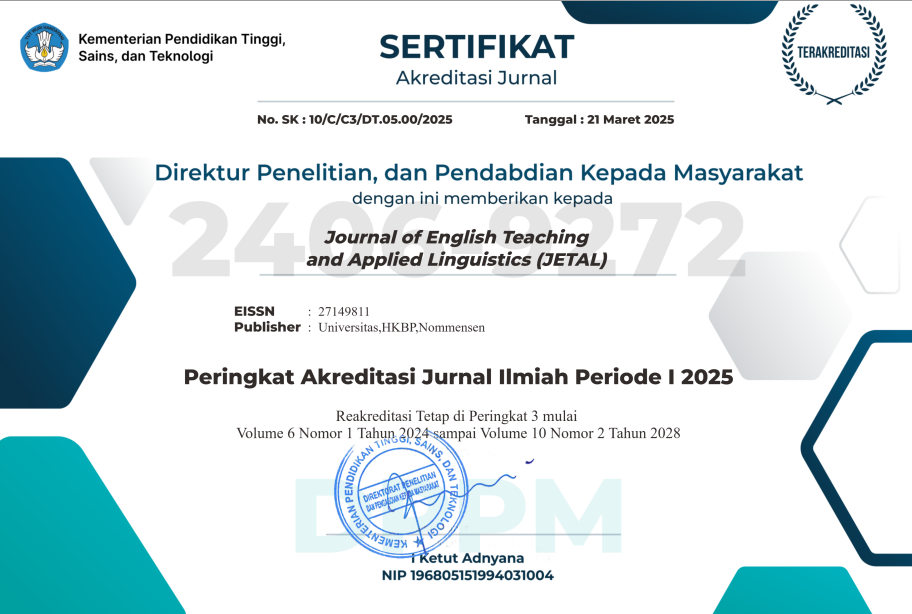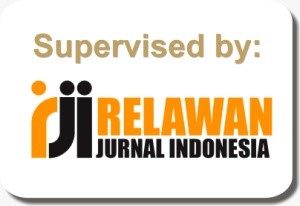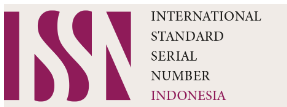Cross-Cultural Perspectives in EFL Education: Exploring Students' Experiences in Narrative Texts
Abstract
This study examines the experiences and interpretations of cross-cultural perspectives through narrative writing by English as a Foreign Language (EFL) students, inspired by Indonesian folktales. This research, grounded in Byram’s Intercultural Communicative Competence (ICC) framework and Narrative Inquiry theory, examines students' ability to maintain their cultural identity in English and the challenges they encounter in cultural-linguistic expression. A qualitative descriptive design was employed, with a narrative writing prompt as the research instrument, utilising data from 50 student-authored English narratives, collected through a classroom-based writing task conducted under supervision. These were analysed through rubric-based coding corresponding to ICC dimensions (cultural accuracy, use of local terminology, translation techniques, and intercultural misunderstandings) and narrative inquiry criteria (voice, structure, and reflection). The rubric-based analysis procedure allowed for categorisation of intercultural and narrative elements using descriptive statistics. Research indicates that the majority of students exhibited cultural awareness and adaptive linguistic strategies: 86% maintained cultural accuracy, 90% retained local terminology, and 78% employed adaptive translation methods. Furthermore, 86% had a logical structure, reflective significance, and an individual voice. Nonetheless, 22% showed dependence on literal translation, while 14% revealed intercultural misinterpretation or narrative disjunction. These findings confirm that culturally rooted narrative writing improves linguistic development and intercultural understanding. The research provides empirical support for the incorporation of local culture texts into English as a Foreign Language training and advocates for instructional scaffolding in metaphor, pragmatics, and narrative discourse.
References
Anisah, L., & Basri, L. O. M. I. H. (2023). EFL Students’ Translation Strategy of Narrative Text of English Language Education Study Program. ELT Worldwide: Journal of English Language Teaching, 10(1), 41. https://doi.org/10.26858/eltww.v10i1.38323
Arifatin, F. W. (2022). A Narrative Inquiry Study on Language Learning Through Pop-Up Book. Ideas: Jurnal Pendidikan, Sosial, Dan Budaya, 8(3), 1021. https://doi.org/10.32884/ideas.v8i3.912
Belaidouni, D., Simerabet, M. L., & Yahiaoui, A. T. A. (2024). Classroom Discourse in Negotiating Meaning via Cross-Linguistic- Cultural Interferences. The International Journal of Research and Innovation in Social Science (IJRISS), VII(XII), 1532–1549. https://doi.org/https://dx.doi.org/10.47772/IJRISS.2023.7012119
Bertoli, S. M., JANGGO, W. O., & KARTINI, M. K. (2025). Implementing Storytelling Method In Efl Classroom Context; Challenges And Opportunities. Educational : Jurnal Inovasi Pendidikan Dan Pengajaran, 4(4), 491–501.
Burgos, M. V. (2024). CULTURAL IDENTITY AND ENGLISH LANGUAGE LEARNING : NARRATIVES OF. International Journal for Multidisciplinary Research, 02(12), 487–500. https://doi.org/10.5281/zenodo.14550487
Byram, M. (1997). Teaching and Assessing Intercultural Communicative Competence. Multilingual Matters. Multilingual Matters Ltd.
Clandinin, D. J. (2006). Narrative inquiry: A methodology for studying lived experience. Research Studies in Music Education, 27(1), 44–54. https://doi.org/10.1177/1321103X060270010301
Cong-Lem, N. (2025). Intercultural Communication in Second/Foreign Language Education Over 67 Years: A Bibliometric Review. Journal of Intercultural Communication Research, 54(1–2), 1–21. https://doi.org/10.1080/17475759.2025.2456265
Gong, Y. F., Lai, C., Gao, X., Li, G., Huang, Y., & Lin, L. (2022). Teacher cognition in teaching intercultural communicative competence: A qualitative study on preservice Chinese language teachers in Hong Kong SAR, China. Frontiers in Psychology, 13(July), 1–10. https://doi.org/10.3389/fpsyg.2022.939516
Heng, R., Pu, L., & Liu, X. (2023). The effects of genre on the lexical richness of argumentative and expository writing by Chinese EFL learners. Frontiers in Psychology, 13(January). https://doi.org/10.3389/fpsyg.2022.1082228
Jasrial, D., Syarif, H., & Zainil, Y. (2023). English Teachers’ Voices on Curriculum Change and Implementation of the Merdeka Curriculum in Rural Junior High Schools in Indonesia. Linguists : Journal of Linguistics and Language Teaching, 9(2), 178. https://doi.org/10.29300/ling.v9i2.2630
Khoir, A., Jessenianta, A. K., & Rohmana, W. I. M. (2024). Utilizing Narrative Text as a Means of Incorporating Literature into English Language Teaching to Enhance Students’ Listening and Speaking Skills. JETLEE : Journal of English Language Teaching, Linguistics, and Literature, 4(1), 68–77. https://doi.org/10.47766/jetlee.v4i1.2251
Latifa, H., Ratih, K., & Maryadi, M. (2023). Implementing the Merdeka Curriculum in English Language Teaching: A Study of Teacher Learning Steps. VELES (Voices of English Language Education Society), 7(3), 640–651. https://doi.org/10.29408/veles.v7i3.24049
Li, Y. (2025). Analysis of the Impact of Cross-Cultural Competence on English Learning Effectiveness Th eoretical Framework of Cross-Cultural Competen ce Research Design and Methods (Issue Hwesm). Atlantis Press SARL. https://doi.org/10.2991/978-2-38476-422-8
Meilinda, I., & Mustofa, M. (2021). INTERNATIONAL JOURNAL OF LANGUAGE TEACHING AND EDUCATION https://doi.org/10.22437/ijolte.v5i1.13772. INTERNATIONAL JOURNAL OF LANGUAGE TEACHING AND EDUCATION, 5(1), 1–15. https://doi.org/https://doi.org/10.22437/ijolte.v5i1.13772
Nelci, A., Lomi, K., Aleksius, M., & Sahan, M. Y. (2024). Folklore Story Telling : A Study on the Effectiveness of Traditional Short Story in Enhancing EFL Learners Vocabulary Development in Sahraen , South Amarasi. Register Journal, 17(02), 279–300. https://doi.org/10.18326/rgt.v17i2.279-300
Qatrinada, C., & Apoko, T. W. (2024). Exploring The Use of Narrative Texts in Teaching Writing for EFL Classroom. Edulitics (Education, Literature, and Linguistics) Journal, 9(1), 62–74. https://doi.org/10.52166/edulitics.v9i1.6536
Sandelowski, M. (2000). Focus on research methods: Whatever happened to qualitative description? Research in Nursing and Health, 23(4), 334–340. https://doi.org/10.1002/1098-240x(200008)23:4<334::aid-nur9>3.0.co;2-g
Sari, P. I., Andini, T. M., & Prihatin, I. F. (2024). Improving Students’ Writing Ability in Narrative Text Using Picture Series. PROJECT: Professional Journal of English Education, 7(2), 303–311. https://journal.ikipsiliwangi.ac.id/index.php/project/article/view/20230
Shintarahayu, B. (2025). Integration of Educational Technology : Enhancing Prose and Poetry Creativity Through Digital Media in Elementary Schools. Assyfa Learning Journal, 3(1), 1–21. https://doi.org/https://doi.org/10.61650/alj.v3i1.142
Simanjuntak, D. C. (2023). ‘What do I need to Know?’: A Narrative Inquiry of Experiences and Expectations for Addressing the Needs of English language learners (ELLs). Language Circle: Journal of Language and Literature, 17(2), 299–308. https://doi.org/10.15294/lc.v17i2.43185
Tiurikova, I. (2021). Researching intercultural competence in language learners: Gaps between theory and methodology. Intercultural Communication Education, 4(2), 122–136. https://doi.org/10.29140/ice.v4n2.437
Verhovtsova, O., Ishchenko, O., Kalay, D., & Tikan, Y. (2022). Analytical Reading for Students-Philologists in the English Class. Advanced Education, August, 132–142. https://doi.org/10.20535/2410-8286.259803
Wahyuni, S. (2017). “What Happen Next?” Strategy to Improve Students Skill on Writing Narrative Text. VELES Voices of English Language Education Society, 1(1), 21–30. https://doi.org/10.29408/veles.v1i1.389
Wang, Y., Xu, M., Jiang, Y., & Jin, T. (2023). Connecting form with function: Models Text for Bilingual learners’ narrative writing. SSRN, 6(6), 1–4. https://doi.org/https://dx.doi.org/10.2139/ssrn.4362376
Yulianti, Y., Umar, U., Sudewi, P. W., & Isma, A. (2024). Analysis of Narrative Writing Skills Among Junior High School Students in Indonesia. 1(2), 41–47 https://doi.org/10.31605/ilere.v1i2.3901

This work is licensed under a Creative Commons Attribution-ShareAlike 4.0 International License.
Authors retain copyright and grant the journal right of first publication with the work simultaneously licensed under a Creative Commons Attribution-ShareAlike 4.0 International License (CC BY-SA 4.0) that allows others to share the work with an acknowledgment of the work's authorship and initial publication in this journal.
Authors are able to enter into separate, additional contractual arrangements for the non-exclusive distribution of the journal's published version of the work (e.g., post it to an institutional repository or publish it in a book), with an acknowledgment of its initial publication in this journal.
Authors are permitted and encouraged to post their work online (e.g., in institutional repositories or on their website) prior to and during the submission process, as it can lead to productive exchanges, as well as earlier and greater citation of published work (See The Effect of Open Access).





